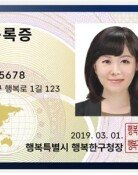Time for 'planet' diplomacy
Time for 'planet' diplomacy
Posted February. 07, 2019 07:29,
Updated February. 07, 2019 07:29
French President Emmanuel Macron and German Chancellor Angela Merkel, who are busy drawing up measures for climate change, have a common word they champion overseas: Planet. It is not just a favorite word for the political leaders. "Planet" is the most frequently spoken word at the World Economic Forum in Davos last month, on French newspapers, and among environmentalists.
The word stresses that environmental issues are the world's common challenge that no single country can resolve. Standing against U.S. President Donald Trump's withdrawal from the Paris Agreement, Macron called on the world to "make our planet great again," a pun on the U.S. president's campaign slogan, "Make America great again."
Isn't "planet" a word that we should shout in order to address the fine dust issue? Needless to say, most of what causes the sky over South Korea to be murky are external factors including China. So far, the South Korean government has done little about China, believing that Beijing would deny its responsibility. Of course, blaming China would only sour the bilateral relations.
It is necessary for South Korea to engage in "planet" diplomacy by proposing agendas for recovering Asia's blue skies and taking the initiative in related forums. It is also possible to actively publicize Korea's polluted skies and call for international attention and help. Winning international support could provide Seoul with a driving force for cooperating with China and other affected countries to seek solutions.
Environment is the world's common agenda. Environmental threats swept the top-three rankings among the world's biggest risks cited at the World Economic Forum. There is nothing wrong if South Korea adopts a pre-emptive and leading diplomatic policy for environmental issues. More than anything else, environment should be a survival strategy for this country, which has the worst level of ultrafine particle concentration among the member economies of the Organisation for Economic Cooperation and Development.
Jung-Min Dong ditto@donga.com







